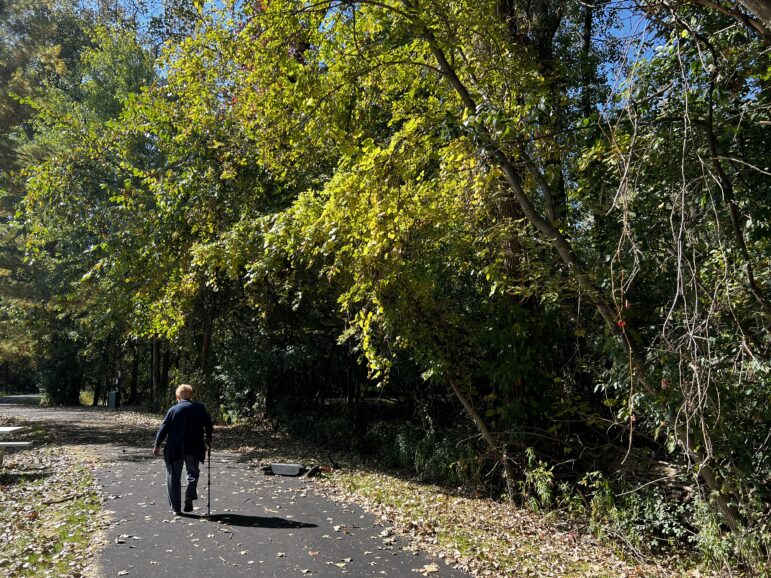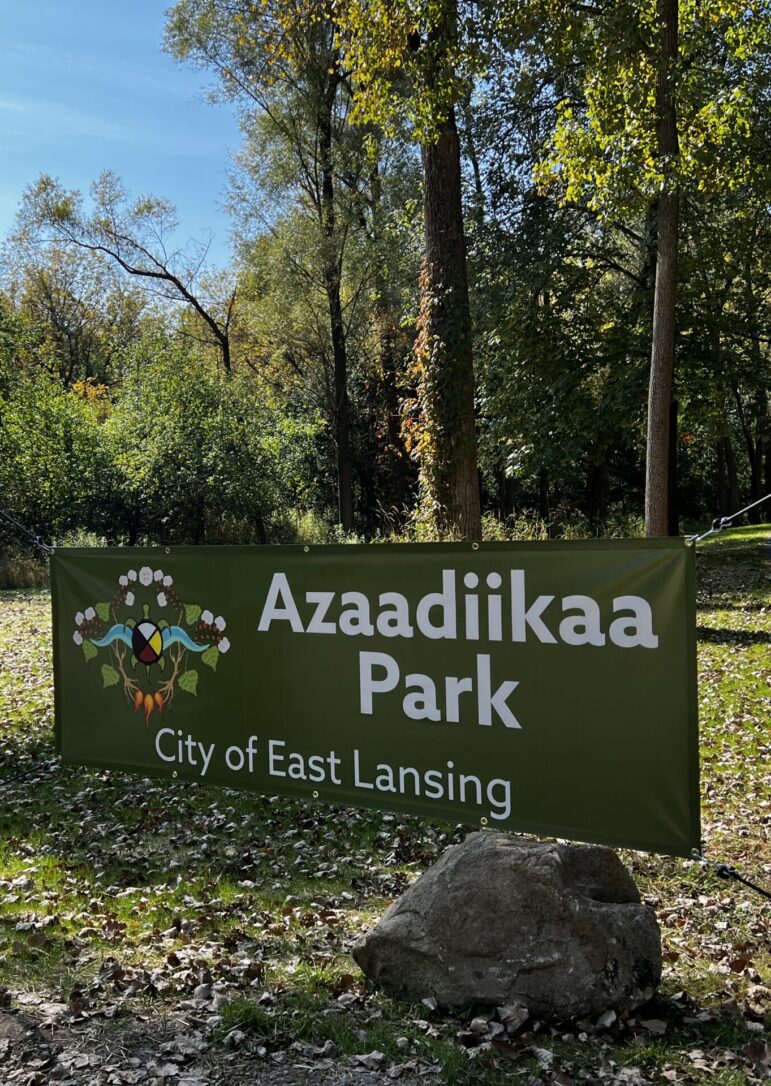
Nora Fleming
Resident walking on one of the many trails in Azaadiika Park.Indigenous communities have long considered cottonwood trees to be sacred and the East Lansing City Park at 2801 Abbot Road has plenty of them.
Acting on a recommendation by an ad hoc committee appointed by Mayor Ron Bacon, the City Council voted to rename the park “Azaadiwag.” However, after being contacted by an elder in the Indigenous community, the committee instead recommended the name ‘Azaadiika’ (uh-ZAH-dee-kah), meaning many cottonwoods, would better suit the park.
Committee member Kayla Gomez said, “Our language is spoken, not written and therefore there are differences between interpretations.”
The park renaming was celebrated with a ribbon cutting ceremony on Monday, Oct. 10, at 11 a.m., to mark Indigenous People’s Day.
Some residents came to the ceremony on Monday in traditional attire to celebrate the renaming of the park. Name pronunciation guides and signs with information about Indigenous culture will be put up for visitors.

Nora Fleming
The park’s new name, ‘Azaadiika’ (uh-ZAH-dee-kah), means many cottonwoods, and pays tribute to the beliefs of the area’s Indigenous people.The City Council voted to make the name change at the Oct. 4 meeting, alongside a resolution to recognize the day as Indigenous Peoples Day.
Nichole Biber, another member of the committee, first submitted a request to rename the park to honor her relatives and history.
“I wanted to ensure that we’re going beyond things like land acknowledgement actions along with it and certainly related to connecting to our relatives and our history and current need to protect areas to value the natural world,” Biber said.
Elaine Hardy, diversity, equity and inclusion director for the city, said her office is excited about the name change.
“We as a city made a commitment via resolution to uplift the indigenous communities’ voices and I think this is perfectly in line to educate the community about indigenous people that were before us,” Hardy said. “It’s a small thing, but we believe we help educate the community about the nation that was here before we became East Lansing.”
Hardy said the office is also going to stay connected to the Black, Indiginous, and people of color communities and take any opportunities to uplift them.
“This park rename was perfect because it organically came from the community. We were looking for a way to uplift the Indigenous community and this beautiful opportunity came up.” Hardy said.
Biber and Hardy noted that the work doesn’t stop there. Biber wants the city to continue to honor her ancestors and continue to protect sacred land. Hardy noted the many resources available to residents looking to learn more about Indigenous peoples and that the park will provide resources as well.
Hardy said that people have to be willing to put in work to learn about different cultures.
“I think I would recommend people do the personal work and go ask questions yourself,” she said. “That’s the most rewarding path to beginning the work.”
More information regarding the park renaming can be found here.